“Now is always the time when more good can be done.” (From the Iona Community, spoken at John Duley’s celebration of life, July 24, 2021)
Eulogy delivered by Professor Dorr at John Duley’s Life Celebration, The Presbyterian Church of Okemos, Michigan
It was a pleasure to know, love, and respect John Duley. He was a blessing to us all. He challenged us, he instructed us, he stretched us, he supported us, he loved us. And we loved him back.
He was a social worker, World War II veteran, Presbyterian campus minister, and “lifelong education program associate professor emeritus.” He was also “a son, husband, father, grandfather, and friend.” Above all, he felt called to be a servant of God. That calling expressed itself, in John’s words, as a “teaching elder, service learning pioneer . . . community organizer, [and] small-time peace and justice activist.” In the words of his granddaughter, all his life “John was a champion for progressive social justice.”
He felt that he lived on the margin, not at the center of power and wealth in society. He was comfortable living in but not of the conventional world.
For John, the presence of the Holy Spirit was the most important thing in the world. Peter Millar’s poem, “Lord of Every Pilgrim Heart,” captured the Holy Spirit’s “leading us in mysterious ways down paths we never intended to travel.” Many of those paths were ones John “never imagined as possibilities.” If he had thought carefully about what competence some endeavors would require, he said, he wouldn’t have jumped as quickly into the experiences. Yet he also practiced the discipline of discernment, which was a clarifying exercise in which three or four people asked him questions about an impending opportunity or decision but did not offer advice or judgment.
John invited so many of us—students and teachers, friends and neighbors, white- and blue-collar workers, volunteers and activists, church members and public servants—to join him in similar journeys.
I first met John when he was working with Learning and Evaluation Services at M. S. U. in the late 1970s. We were on a panel discussion focusing on motivating students. John’s work was practical, pertinent, and necessary because it helped us become better teachers and learners. His course, “The Meaning of Work,” which he taught with Fred Graham, distinguished between job, career, and life work. Experience and service learning counted. He wanted students to be “street smart” as well as “book smart.” He wanted them to live what they learned and learn what they lived. He also tried to connect their inner journeys with their outer journeys. He would be pleased, I believe, that the University has finally created an Endowed Chair in Spirituality, in which examination of work, ethics, spirituality, and service will combine with the goals of empathy, compassion, and altruism.
The second place I met John was in peace and hunger workshops, sponsored by the Western Michigan Presbytery in the early 1980s. We were addressing controversial issues such as the sanctuary movement. We were given a continuum of responses to such issues. We could practice a spiritual discipline, read the Bible, study hard, link up with an institution or social outreach, or get involved in public policymaking. Different people possessed different gifts, interests, inclinations, or activities, so choose one or more these options, John was saying. He had tried all of these possibilities himself, had known success and disappointment in each one, but had not given up.
In the course of his life work, he seemed to move from personal involvement in controversial political issues to more emphasis on structural issues in education, housing, and economic improvements involving small communities.
John also asked us to use our bodies as well as our minds and hearts. I did not work on the timber frame house at his and Betty’s farm along the Grand River near Lyons, but in 1992, I did help build the stairs going down to the river. Standing with three other men on that steep cliff, trying to balance with one foot several inches higher than the other, hoping those old bleachers from East Lansing’s football field would hold, trying to hammer a nail into the hard wood, I was scared. I feared I would soon find myself plunging down the slippery slope into the Grand River. That was nothing, however, compared to the fear that John faced during the mid 1960s when he traveled into the South to prepare for the STEP project in Mississippi or march for voting rights in Alabama. Think about the courage it took as well to confront the establishment about housing discrimination in East Lansing in the late 1960s. “John was a genuine hero,” Lynn Jondahl noted earlier this week.
The most pleasurable and enduring friendship with John has taken place in the men’s breakfast group at our church. For nearly 32 years, we have met every Tuesday morning—some 1,660 weeks. We have talked, teased, and supported one another. We have shared our life stories with each other. We have studied the Bible and other books, focused on lectionary lessons, and helped those preaching sermons the next Sunday. We have worked together.
When we disagree, we try to argue to understand, not to win. We close meetings with prayer.
John and Betty’s farm on the Grand River was the place for many of our best retreats. There Bill Moyer’s televised program, A Gathering of Men, produced tears as well as greater understanding between sons and fathers. John was a most vital part of this group, preaching, teaching, discerning, talking about his life, inviting us to join his latest social endeavor. “This group has been my home,” he told us many times. His experience felt like God’s “unconditional acceptance, warts and all.” Shared doubts, shared personal situations, shared acceptance of one another—all was “based on our shared journey.”
At last Tuesday’s Zoom meeting of the men’s group, we talked about John Duley, his life, character, callings, and effect on so many other people. Someone stressed how open John’s vision was: things didn’t have to go his way or turn out exactly the way he had planned. Several men talked about a book club that they and John belonged to. Meeting once a month, they read nonfiction—challenging books that increased one’s understanding of current interests, affairs, and problems. Even when John’s eyes began to fail him, he tried to listen to a recording of each book. He encouraged Kent Workman to continue taking students to unfamiliar places in the U. S., Mexico, or overseas. Someone lauded the budding scholars program at Edgewood Village, not just building a playground there but also helping low-income students become high school and college graduates.
People praised John’s writing about such civic projects: getting Martin Luther King, Jr., to come to M. S. U. to speak before an audience of 4,000 people, M. S. U.’s involvement with STEP—the Student Tutorial Education Project that helped students improve their skills and got Rust College accredited, the Greater Lansing Housing Coalition to improve living conditions, Closing the Digital Gap in Lansing’s students and families, the expansion of Edgewood Village’s programs. “I’ve never met a person with so much influence in other people’s lives,” one member of our group said.
Others talked about John’s loving relationship with his wife, Betty, who fought for justice in other endeavors: helping the homeless, directing the Lansing Food Bank, promoting a freeze on nuclear weapons. Theirs was an authentic “partnership.” Still others noted John’s humor and idiosyncrasies.
Although he retired from the campus ministry at 62, at 65 he said he needed to do something new every five years not ten years.
John Duley may have been 5 feet, 6 inches tall, but he was large in stature, wired for doing, and welcoming in spirit. He embodied that old African saying, “When you pray, move your feet.” His life and service embodied this truth: “Where love and courage intersect, life matters most of all.” Limits can limit, we all know, but John reminded us that limits can also liberate. Like Jimmy Carter, John gave us a fine example of aging well: retirement for something, service given to others, striving to change what needed to be changed, wisdom springing out of experience, a core of regenerative love, and a rich Biblical faith nurtured, shared, and now passed on.
“On the day when death will knock at thy door,” a Hindu poet has enquired, “what wilt thou offer him?” “I will set before my guest the full vessel of my life,” the narrator replies. “I will never let him go with empty hands.” John Duley did not let his guest go away with empty hands.
Thanks be to God. Thanks be to God.
Sources
On p. 1, the sources in the second paragraph are “In memoriam,” insidemsu@msu.edu, July 20, 2021; p. 1 of John Duley’s autobiography, The Ever-Present Possibility of the Intrusion of the Unexpected; and the Lansing State Journal’s obituary on July 18, 2021.
In the rest of the eulogy, direct quotations come from pp. 106 and 19 of Ever-Present Possibility and pp. 74-75 and 216 of the second volume of his autobiography, Notes from the Margins: An Ode to the Holy Spirit, 1997-2007.
The poem at the end of the eulogy is by Rabindranath Tagore, quoted by Jolene Carpenter in “Prof Studies the Ambiguities of Cancer,” The MSU News-Bulletin, Dec. 5, 1985, p. 5.
All the other quotations are my memories of conversations.
From the Editor: Addendum 1
John Duley’s Obituary
courtesy of Watkins Brothers Funeral Homes
John S. Duley, age 100, died peacefully on Thursday, July 15, 2021, in East Lansing, Michigan. From his birth in Cincinnati, Ohio, on November 15, 1920, John was a champion for progressive social justice through his final days. Though his original plan was to be a farmer, he used his life to cultivate spiritual and community well-being. In his early 20s, he met Marian (Betty) while working as a youth leader for the Presbyterian Church in Columbus, Ohio. Though their relationship was blossoming, John felt obligated to join the US Army and served 30 months as a medic in WWII. Upon returning from the Army, he and Betty married and moved to New York, where he attended seminary. When asked what the secret to their successful marriage was, John stated, “our partnership.” Together, they would shape a life of purpose for their own family and for every community they were a part of.
After being ordained as a Presbyterian minister in 1948, he spent a year at Cambridge and joined the Scottish Iona Community. It was through this experience that he was called to facilitate work in peace and justice. He and his family moved to East Lansing in 1962 to work as an MSU campus minister. There he would become a civil rights activist and leader at both the community and national level. During his time at MSU, from 1962-1982, John strengthened services for nontraditional students, pursued fair housing in East Lansing for non-white residents, pioneered the national service-learning movement, and developed and led the Student Tutorial Education Program (STEP) from 1965-1968, engaging over 100 students and faculty volunteers to prepare students at Rust College, an all-black Mississippi school, for academic success and to support the school’s full accreditation.
Following his time at MSU, John’s commitment to equity continued. In 1982, the Michigan Peace and Justice Network was established due to his and Betty’s petitions. In 1989, they founded the Greater Lansing Housing Coalition. In 2001, he created the Closing the Digital Gap program. In 2005, Edgewood Village was formed, and later the Edgewood Scholars Program and MSU partnership expanded. This work was not done in isolation. John was a leader who never did the work alone; he built coalitions and facilitated community change with and not for.
He lived his life on the margins of the institutions with which he worked. Spearheading change from within while pursuing justice for all was his true calling. The world and our communities are better because of his life. It is our job now to keep his legacy and vision alive.
Left to honor John’s legacy are his daughter, Judith Gardi; son, Peter Duley; and son-in-law, Chuck Wolterink; and his grandchildren: Elizabeth and Daniel Wolterink, Hannah Gardi, Gavin Mbatha, Mac Ngobese, and Nick and Ryan Duley. John was preceded in death by Betty (2010), his daughter Kathy (2007), his daughter-in-law Joyce (2018), and his son John (2020).
From the Editor: Addendum 2
FutureU, through Frank Fear and colleagues, spent a good share of Summer 2020 interacting with John and documenting his approach to life, social change, and justice. We produced a series of podcasts and videos that you can listen to/watch.
DULEY NOTED is John talking about his life. DULEY ACKNOWLEDGED includes others talking about John and his work. The final audio was recorded by two of John’s colleagues, Diane and Tom Emling, as a 100th birthday present to John. (click on hypertext to listen to audiocasts)
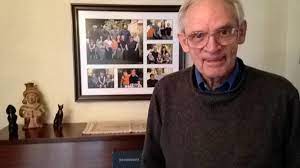
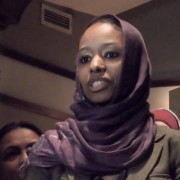
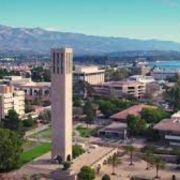
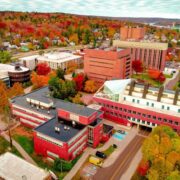
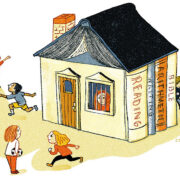
No Responses